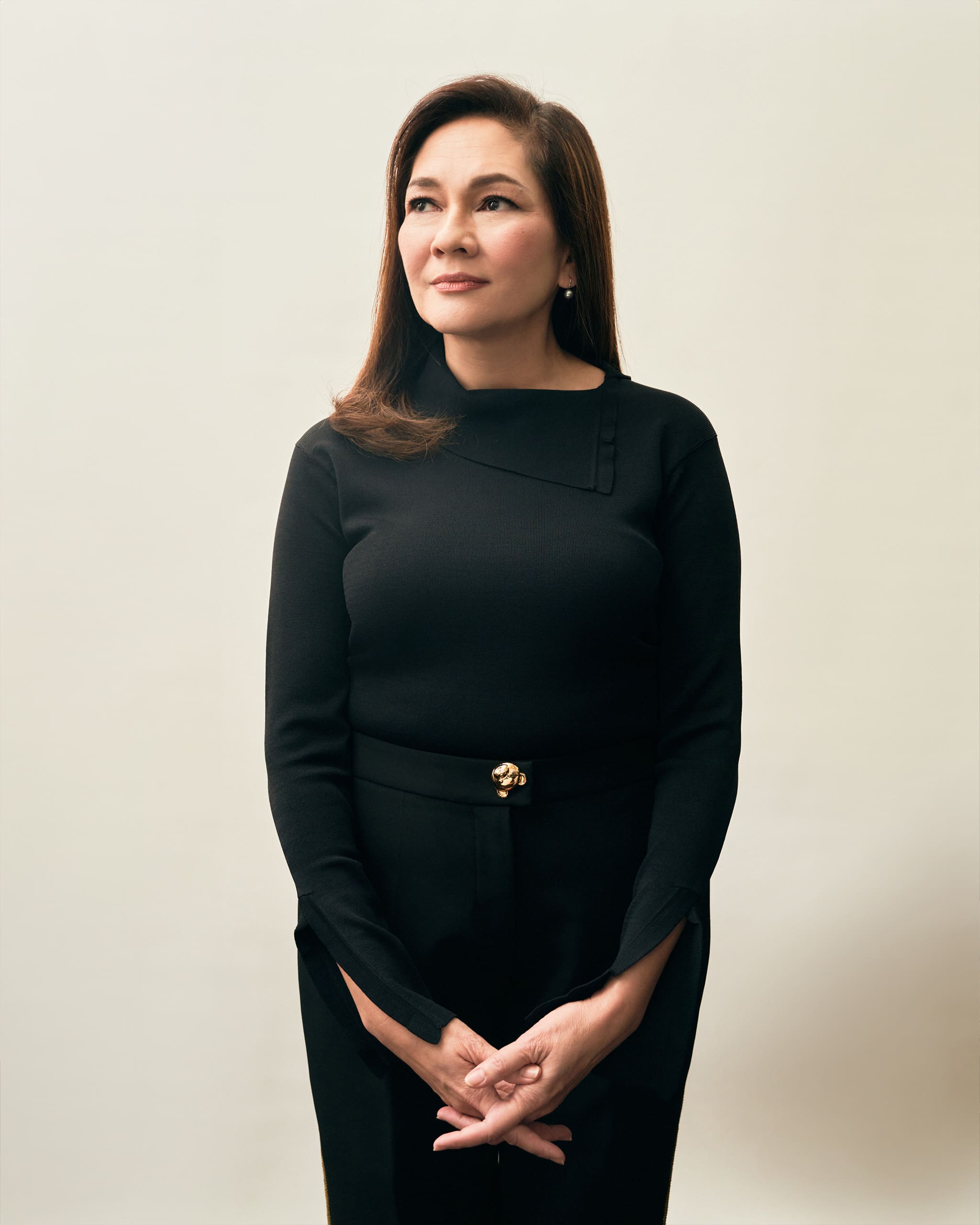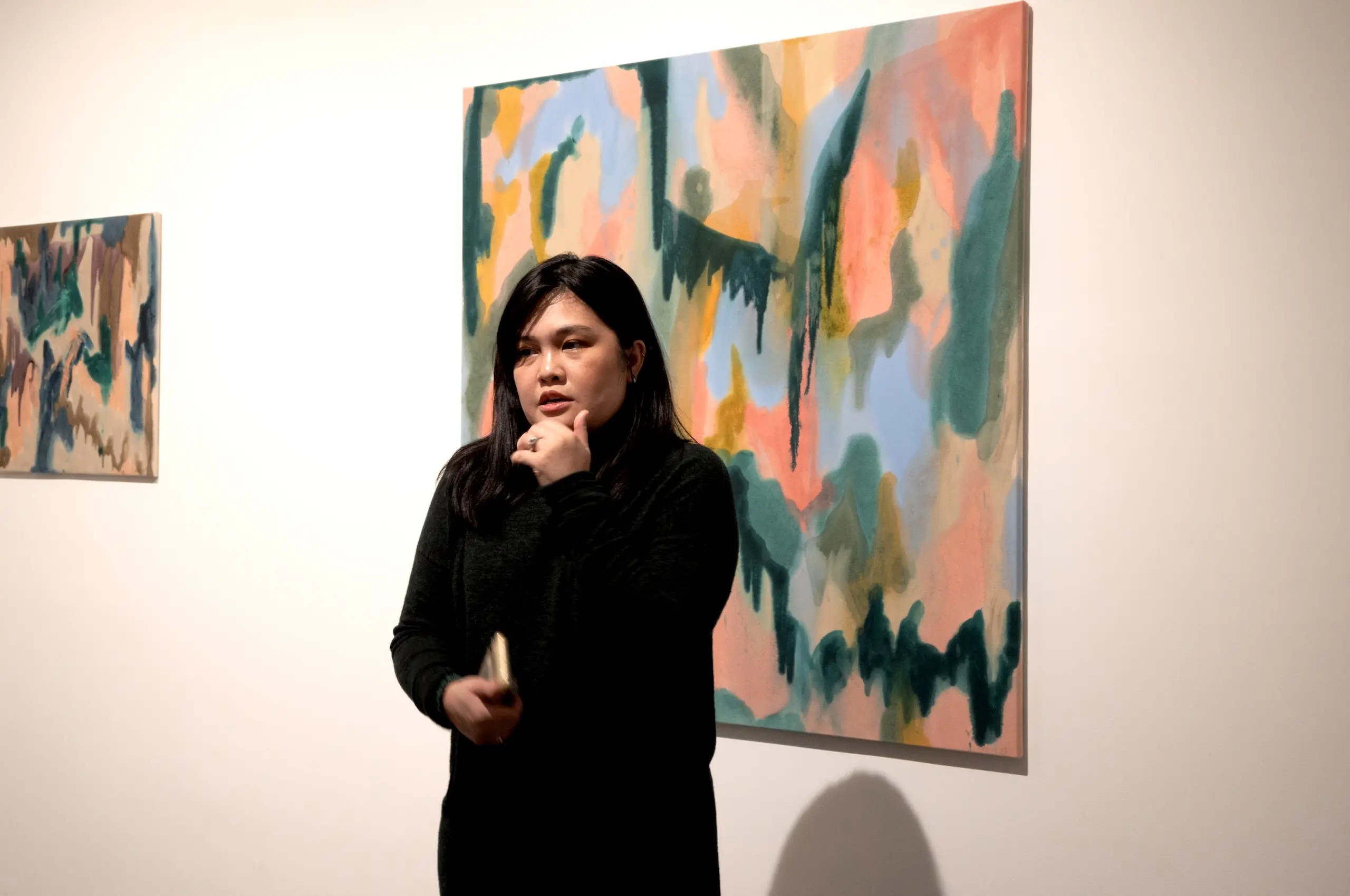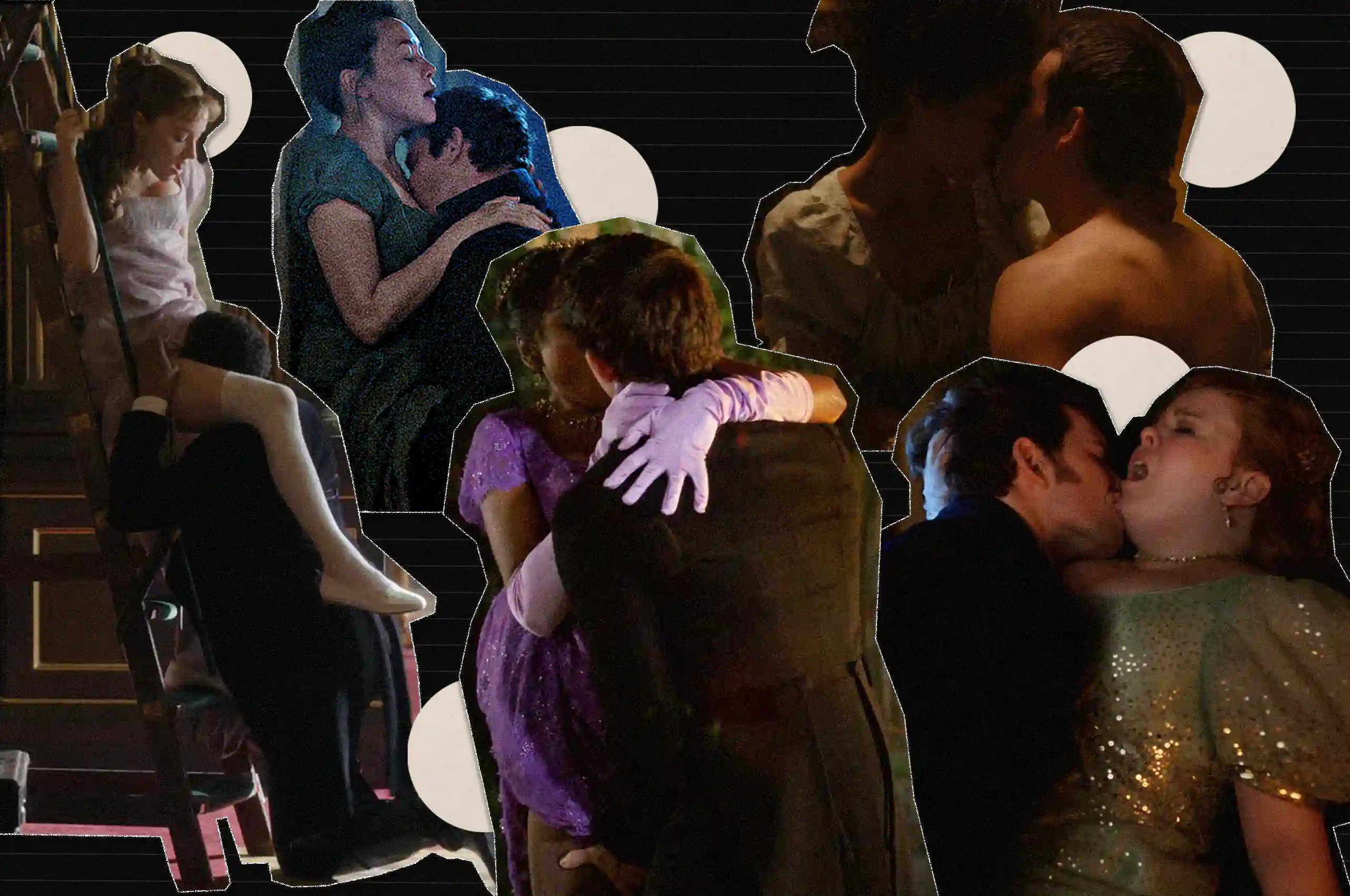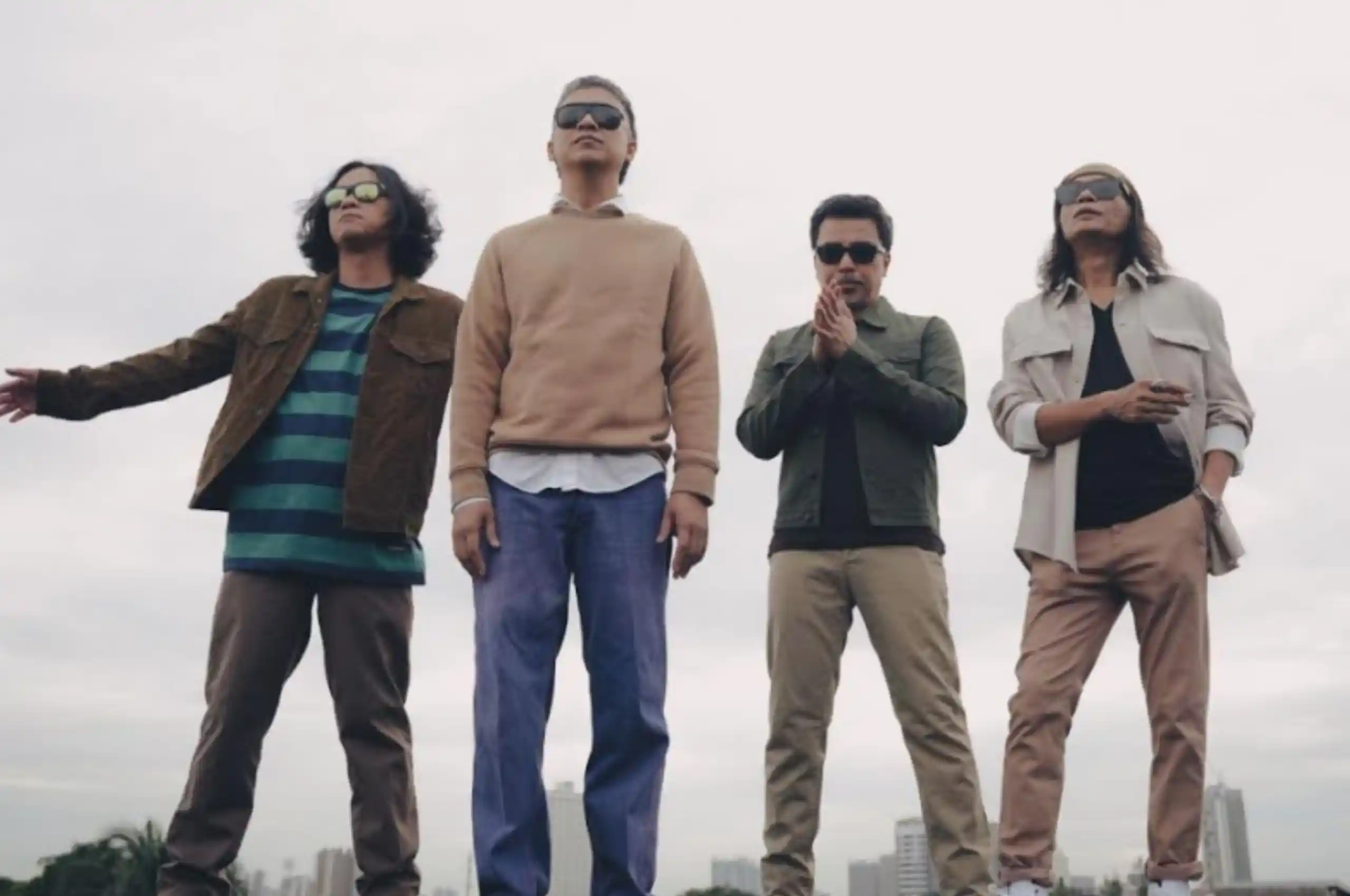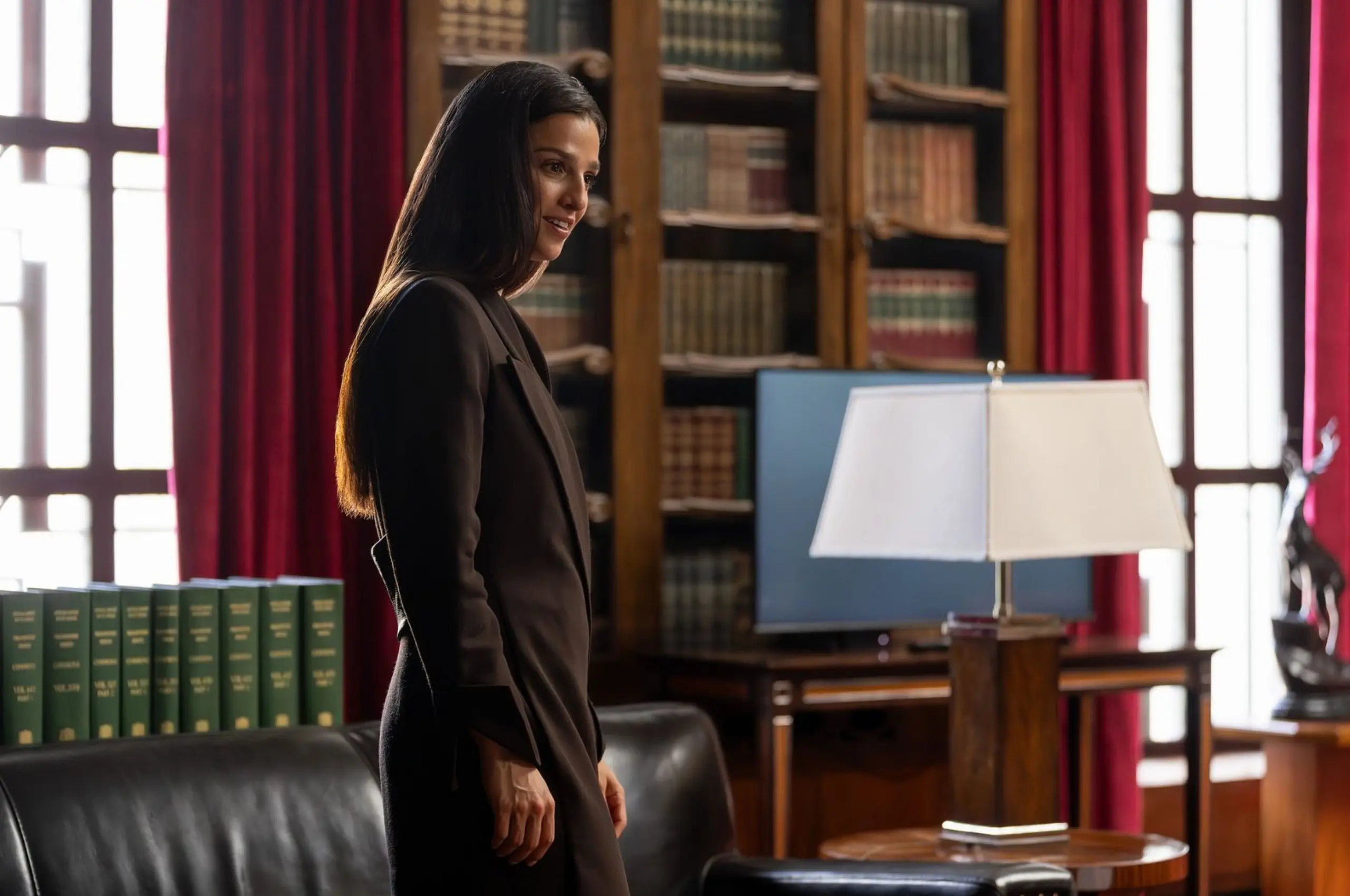Boiling discontent rushed through the veins of the Filipino people at the turn of January 1970. The debt-funded reelection of President Ferdinand Marcos led as many as 50,000 protestors — many being students — to take the streets of Manila. Their placards and effigies called out the President, whose reckless spending, they felt, made a mockery out of their livelihoods.
What began as a desire for reform agitated into three months of civil unrest: Protestors hurled pillboxes and molotov cocktails at the Malacañang Palace, while the police retaliated with truncheons and live bullets. “Anyone who was not a minion of the state became instantly an activist, even if only for a moment.”
These vivid details, penned by Jose F. Lacaba, line the pages of Days of Disquiet, Nights of Rage. Considered a bible by martial law activists, it describes the events of the First Quarter Storm, which saw some of the most violent face-offs in the Philippines’ post-war history.
The book sits atop a stack on Senator Risa Hontiveros’ desk, which, within the walls of another Marcos presidency, reads like a small act of subversion.
“You’d be surprised who gave it to me,” she quips. “A former chief of the [Philippine National Police], of all [people].” Hontiveros says this chief used to be a student activist, which makes the touching gesture all the more intriguing.
At the dawn of the First Quarter Storm, Hontiveros was barely four years old. Yet, its legacy left a lasting impression on her. In high school, Hontiveros organized discussions on nuclear disarmament. Throughout her twenties and thirties, she was a staunch peace advocate who marched the 1986 People Power Revolution, and led peace talks between the government and armed left groups. This work earned her a seat in the House of Representatives in 2004 for the Akbayan Partylist where she blew the whistle on the country’s most notorious corruption scandals.
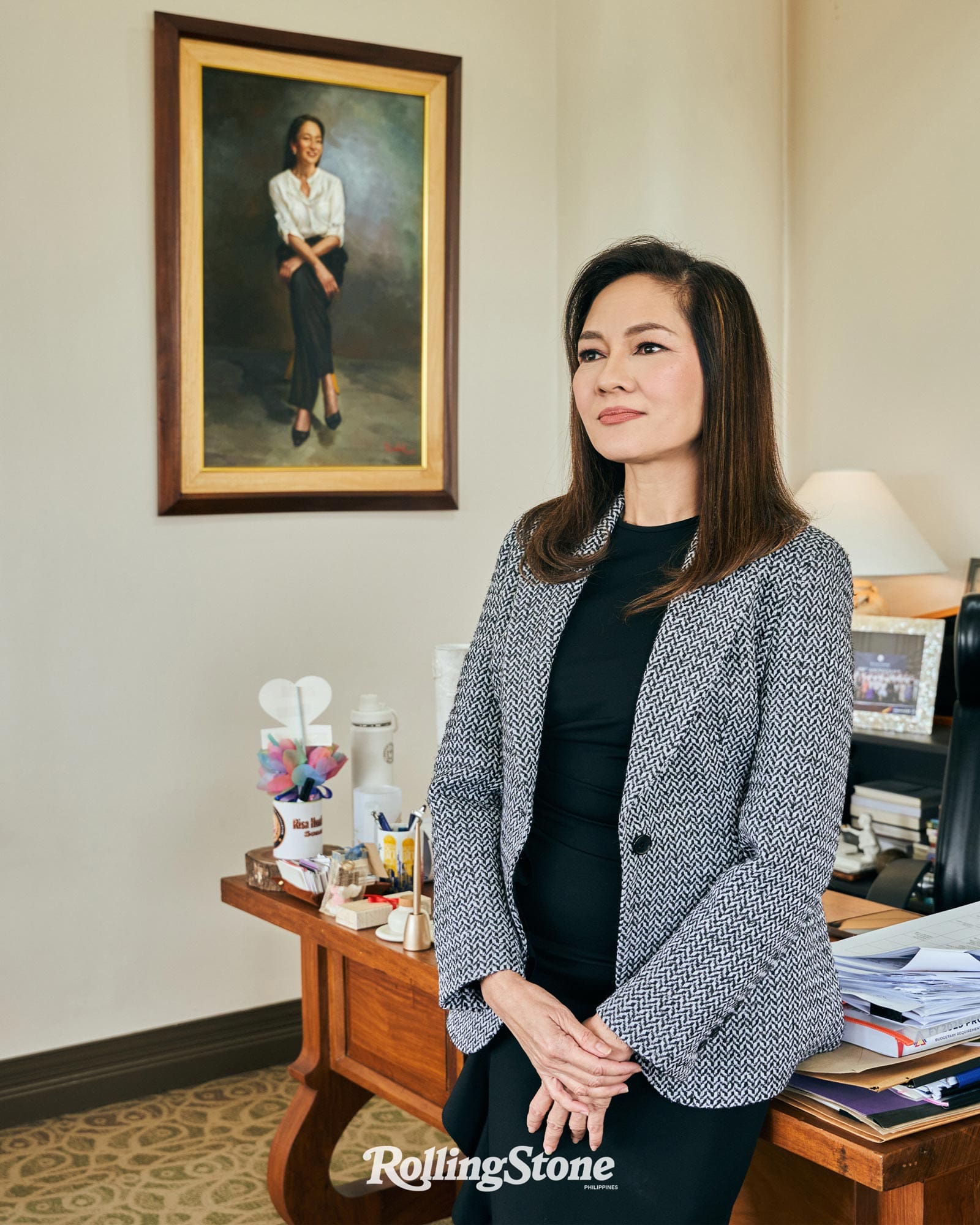
2024 marks Hontiveros’ eighth year in the Senate. She is one of two opposition members in a room of 24. Her legislations are imbued in a philosophy of egalitarianism — whether by authoring the country’s first legal framework for mental health care (Mental Health Law), or placing protections against gender-based harassment (Safe Spaces Act), among others. Negative perceptions around activism persist — at worst, it is wielded by conservatives as a form of terrorism — but Hontiveros insists that she is, at her core, a student of liberation; an activist who believes action is the driving force of freedom.
It’s a November morning and, after an intense budget plenary hearing that lasted until 2 a.m., Hontiveros meets me in her Senate office, carrying a sense of humor.
How many hours of sleep do you get?
Ideally seven, but usually less. It’s my favorite thing to do. Sleep!
Do you have any hobbies?
Of course. Reading, listening to music.
What kind of music do you like to listen to?
Iba-iba. [Original Pilipino Music], standards, ballads. Broadway.
I know you have a background in theater.
Yes! I was with Repertory [Philippines] as a kid. Well, not a kid. A teenager. [I was in] The Sound of Music. After politics, I intend to go back to theater and music because that was my first love. Na-ambush lang ako na maging aktibista.
What’s your favorite theater production?
Among the Filipino musicals — I haven’t watched it but, reading about it, I love the idea behind Katy! [The Musical]. Sa Broadway, siyempre, Sunset Boulevard, Les Misérables, Phantom of the Opera, Hamilton.
As someone from the theater, which is arguably different from film, do you gravitate towards a style of acting?
It’s so interesting you should say that. Some film actors I really respect also work in theater. Did you know Bradley Cooper also works in theater? Tumawid siya, and he auditions. Wala siyang star complex na, “Ah, I’m Bradley Cooper. I should get this role.” He auditions. Very disciplined daw siya sa rehearsals and, siyempre, he’s a brilliant actor.
I respect actors who really become their characters, even scarily — like [Robert] De Niro, and [Marlon] Brando. I’m sure may mga Pinoy actors na gano’n din ang method, or those who break the fourth wall to speak to the audience. Natutuwa ako when there’s a film or theater piece that combines something like method acting — that discipline, that absorption — with very personal and social stories that take place in a historical context. I also love writers like [Gabriel] García Márquez and [Isabel] Allende.
Is there a connection between theater and politics?
Yes! It’s funny you should ask that too. Meron talaga. You think of people like Václav Havel who also crossed the worlds of theater, playwriting, and political involvement. Activism. Sinasabi ng mga chief of staff ko, and friends who teach me about communicating, na politics is theater, in a way. It’s about being in touch with yourself and people who are concerned about the same issues. We share dreams as a people. That’s so theater! That’s so film too, I guess. The great directors will tell us that.
We need to recover civility in public discourse and learn how to disagree without wanting to kill each other.
I was watching an episode of Succession last night, and there’s an episode that re-enacted Donald Trump’s election in 2016. It touches on how news organizations race to call the President-elect first. And throughout the episode, the writers throw around this idea of “narrative” in politics. As a politician, do you often think about narrative?
As an activist of my generation, we are so in love with grand narratives. Our history, ideology, and philosophy — we can anchor it on the track record of our sister parties here, and other parts of the world.
But for my kids’ generation, hindi na e. Hindi kasing in-love with the idea of ideology. Not so attracted to [political] parties or labor unions. But being involved in new kinds of work na kailangan pag-isipan ng mga aktibista ngayon — paano natin i-o-organize ang [business process outsourcing] or home-based workers? Kaya ang galing ng mga domestic workers, both globally and in the Philippines. Nakaisip sila ng paraan para mag-organize.
And narrative, of course — ano ba’ng kwentong buhay ko? Someone of my generation, iniisip namin, “Paano nabubuhay ang aktibista noon dito sa atin, o ngayon sa ibang bansa? Paano nila kinakabit ang kwentong buhay nila sa kwentong buhay ng sambayanan nila?” That’s how I still think, and how I would like to think for the rest of my life — na sana kapakipakinabang ang buhay ko sa kwentong buhay ng mga kababayan natin.
That’s why I’m so attracted to social realist films or plays that don’t lose their personal touch. Iyan naman ang isang lesson na painfully learned by activists of older generations. They sacrificed everything for “the cause” but at the cost of their loved ones and themselves. Sino ba ang “people” if not the ones closest to us — our families, our friends? They should not be abandoned in the whole experience of the people.
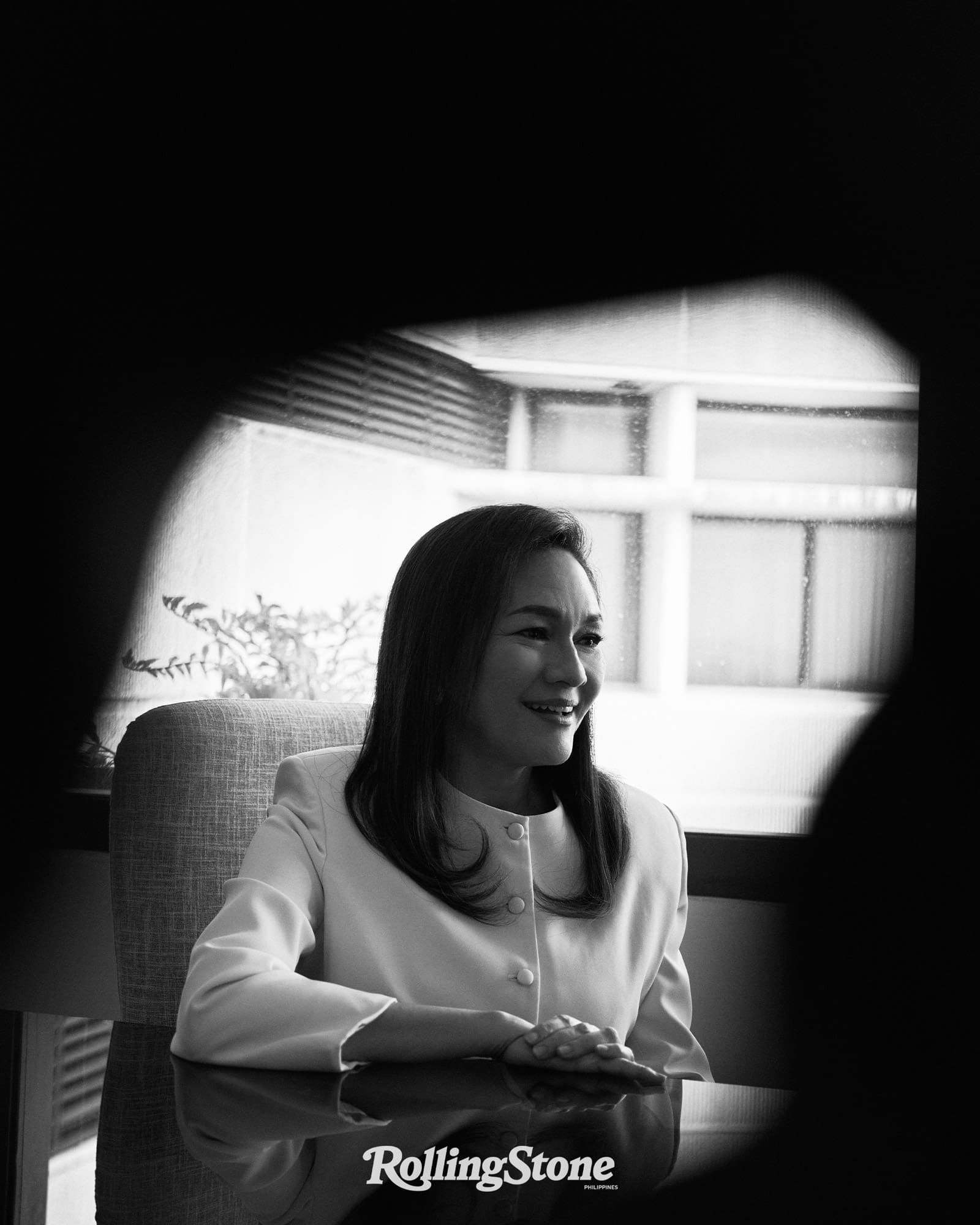
‘Yong mga mas matandang kasama ko, many of them rediscovered the self. In their senior years, a lot of them undertook their own spiritual search again. Nabalikan ‘yong pananampalataya nila. Kung agnostic or atheist sila, but they’re people of good faith, they rediscover their humanism — ‘yong pagpapahalaga talaga sa tao. For those who have faith, that’s always our first bridge to God, the universe, or someone or something greater than us. Even the people! That’s the ultimate humanist idea.
So, for me, narrative is so multilayered. Kaya ako na-a-attract sa mga pelikula, mga libro, mga dula, who have that realization.
I want to rewind on your life and ask about your mother’s influence in your social justice work. I read that she brought you to a symposium?
Yes. Nuclear Free Philippines Coalition.
Exactly. Why do you think she brought you to that?
I actually haven’t asked her why. Well, she’s very curious. She was always bringing us to things, or asking us if we wanted to go to this or that. We were a middle-class family. If we could have afforded it, I’m sure she and Daddy would have taken us to more lessons. I used to take the middle-class girl thing of ballet, which I still love anyway. Baka gan’on din ‘yong sa NFPC symposium sa [St. Scholastica’s College]. I was in St. Scho from grade school to high school, and St. Scho is a great activist school. The Benedictians are great. They were so much into prayer and work, kaya “ora et labora” ang [motto] namin.
So, Mommy brought me to that symposium. Well, she hit the nail on the head because I was so attracted to it. I was so inspired by the “tres marias” of NFPC: Nini Quezon Avanceña, Sister Mary John Mananzan — a Benedictine — and Mary Concepcion Bautista. Because of that, instead of continuing with Glee Club and Repertory the year after, in junior high, nag-organize ako ng Nuclear Free Philippines group sa St. Scho. Ayon, tuloy-tuloy na ang pagiging aktibista ko. Through college until now. She helped set me up on this path.
Did you have a cognitive dissonance when you decided to pursue advocacy? If you were preoccupied with ballet or theater, and you opened your eyes to this world, did your glass shatter? Because you were so young, too.
I was fifteen.
I imagine there was a shift in your value compass when that happened.
Funnily, hindi. Things can become very clear to me during the moment. I was already inclined to activism because my first mass action was in the noise barrage for the 1978 [Lakas ng Bayan] campaign. Ninoy Aquino and other opposition leaders were running from jail. There was this huge noise barrage. Hindi pa ‘to [National Capital Region] noon. It was called, then, the Greater Manila area. We were just in our backyard, clanging pots, pans, batya, and whatnot. You know, like many middle-class and poor families — and some rich families — our family was worried na baka walang sumali.
Pero I was surprised and shocked. Ang ingay! That’s when I first got the sense — I was twelve — na marami na palang may ayaw sa dictatorship; my parents, who, like many middle-class parents, voted Marcos in 1965, but by 1969, especially after he declared martial law, naging opposition na talaga ang clan namin.
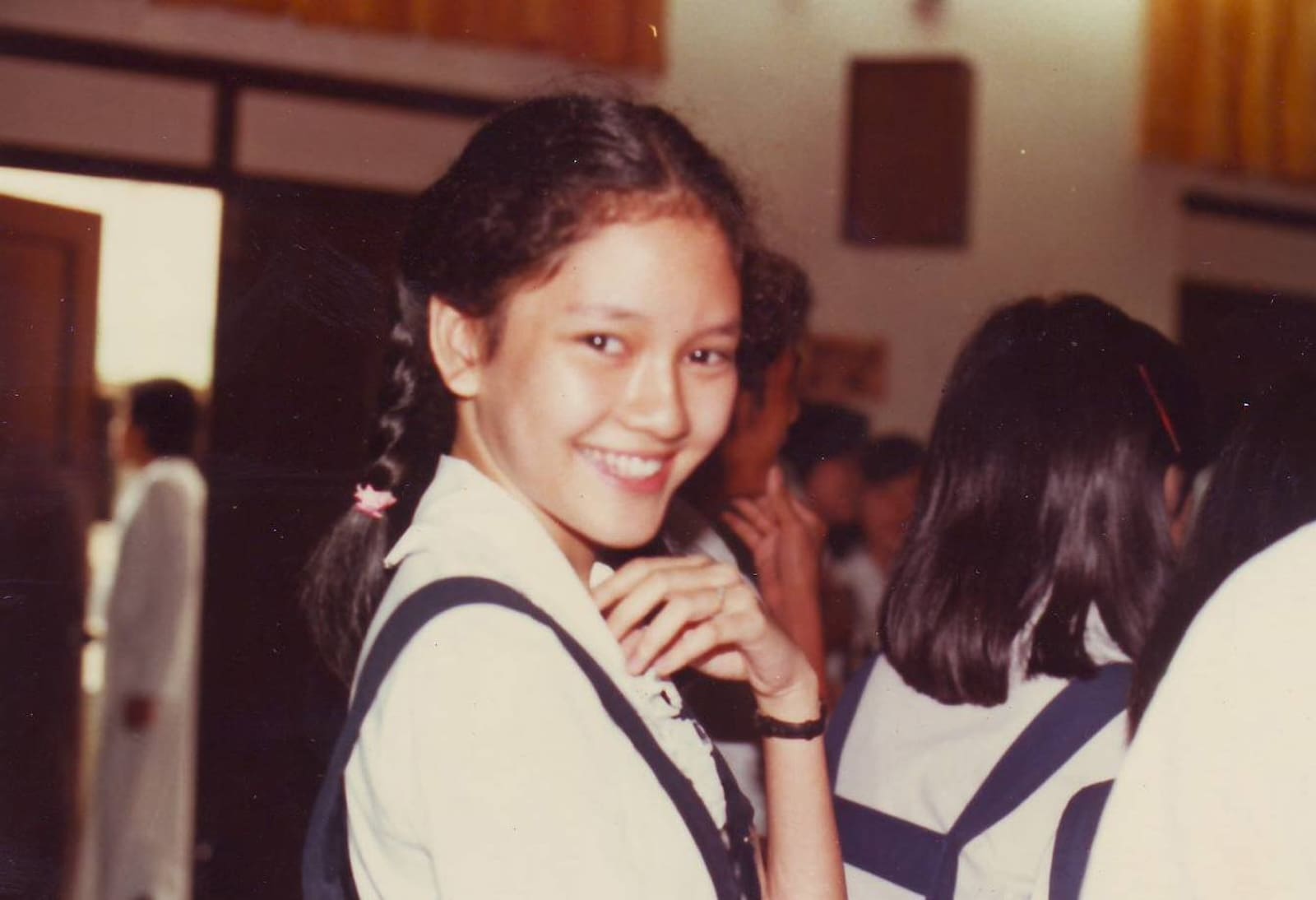
I grew up in ballet and theater with that opposition bent. NFCP was an addition to me knowing what the martial law dictatorship was about — that it was about the [Bataan Nuclear Power Plant] linking up with the supply chain of nuclear weapons. It was about allowing [American] planes and ships that were nuclear powered and were probably — because they couldn’t confirm nor deny — bearing nuclear arms under the den of U.S. military navy bases in the Philippines.
So, no. Walang cognitive dissonance. Walang “Huh?! Ano ‘to! It doesn’t fit with me.” Walang shattering. It was just more steps in a similar, broader direction.
I was really curious about a write-up from 2005 when you were nominated for the Nobel Peace Prize with 1,000 other women. It said you were attracted to ideas of liberation theology. Could you elaborate on that?
I’m so inspired by struggles — personal and collective. We have a long history of revolutions here in the Philippines. The Katipunan was an early high point. But even before the Katipunan — not just decades, but centuries of smaller, regional, provincial and local struggles against Spanish colonization. They all came together at the Katipunan and continued even after America interrupted our victory against Spain.
In the 1920s, under the American colonial administration, the early socialist parties were formed. The labor movement was formed during the Japanese occupation. Filipinos continued to fight. So many generations of people fought — the heroes, and the nameless ones too. World War II. My uncles fought in Panay Island. Three of them with the guerillas, one with [U.S. Army Forces in the Far East]. One of them was killed. But the others fought and survived.
Of course, under martial law, there were terrible, terrible struggles. And People Power. You know, nobody can diss People Power. That’s why it’s the great target of the Marcos historical revision project. It was a true political revolution. When we did it, it gave us more duties to fulfill; to broaden and deepen the political democracy, and to go deeper into the economic and sociocultural democracy.
In the face of strongman populism, authoritarianism is a wake-up call for us who say we believe in democracy — not just here, but all over the world. It has to matter. We keep blaming the poor for voting this or that, as if middle-class and rich people didn’t vote for these candidates who win — who shouldn’t have won, or shouldn’t win. We’re not poor! If we were poor, and all this democracy that we in the middle-class and the rich love to talk about, but don’t always vote either… we haven’t made it matter. Why is there still that poverty and inequality? Even if you don’t share the same politics or ideology, it just makes economic sense to redistribute wealth so people can have a stake in this democracy. People can fight for democracy if and when it’s threatened because democracy makes life better for people. It hasn’t yet completely. So, nobody can take People Power away from us and all the struggles since then.
So, I’m very inspired by those struggles. Growing up in that milieu, reading as a teenager in high school about Paolo Fiere’s Pedagogy of the Oppressed, which [the Second Congressional Commission on Education] should also read now… It just [beautifully describes] the banking method in education, and what conscientization process should happen in education so we can help each other liberate ourselves. I’m a Catholic and our faith is not only for us to personally connect with God — which we need but it should also inspire us. It should compel and oblige us to live with people a certain way… The way Jesus did, ‘di ba?
So, liberation theology challenges us to see that there’s not only personal sin, but also social sin, and we must work to transform that. Because I don’t think God ever imagined people would live in such miserable conditions. And that’s not romanticizing it. It’s really miserable how so many people in our country, and in the world, live.
One of the prayers I love in The New Liturgy is the one in the “Prayers of the Faithful.” It goes something like, “So many people have died, forgive us, Lord, for the times our sins have acted against your love.” Ang ganda, eh. We really need that humane quality of life that recognizes the dignity and rights of a person.
Throughout your career, you’ve encountered a lot of conservative politicians in the face of your progressive legislation. How do you reconcile this need to stand up for your principles while accepting that people ultimately have different values and life experiences?
I always have to remind myself to respect that, [in] the same way I expect them to respect my ideas as a person when they don’t agree with me. I always try to remember that this is a human being. I must respect their dignity and rights.
We cannot afford a third successive administration, which doesn’t represent the best of what we are, and what we want to become. This is just my biased point of view.
I had this [question in mind] when I watched your confrontation with [former President Rodrigo] Duterte [in the Senate]. Because he was talking so strongly about what he saw in Davao [as mayor]. I thought, “Maybe he thinks that way because of his life experience.” He saw certain things.
[Sighs] It’s really hard to keep thinking, “I must respect this person,” when confronted with someone like Duterte. Okay, I concede him to his life experiences. But I super, super, disagree with him. My soul rebels against his interpretation, the way he lived his moments forward as our President, and how he is still having a revival about it in the public imagination. I think that’s one of the things we should really combat.
But still, I must [be respectful] even when confronted by someone like him. Politics is a super concentrated space of that reality in our whole society na talagang magkakaiba tayo ng pananaw. That’s the challenge, but also the raw material — the building block — for organizing, educating and mobilizing; to build consensus and communities around common dreams, and ways of achieving those dreams. Lalo na in this age of social media, we need to recover civility in public discourse, and learn how to disagree without wanting to kill each other.
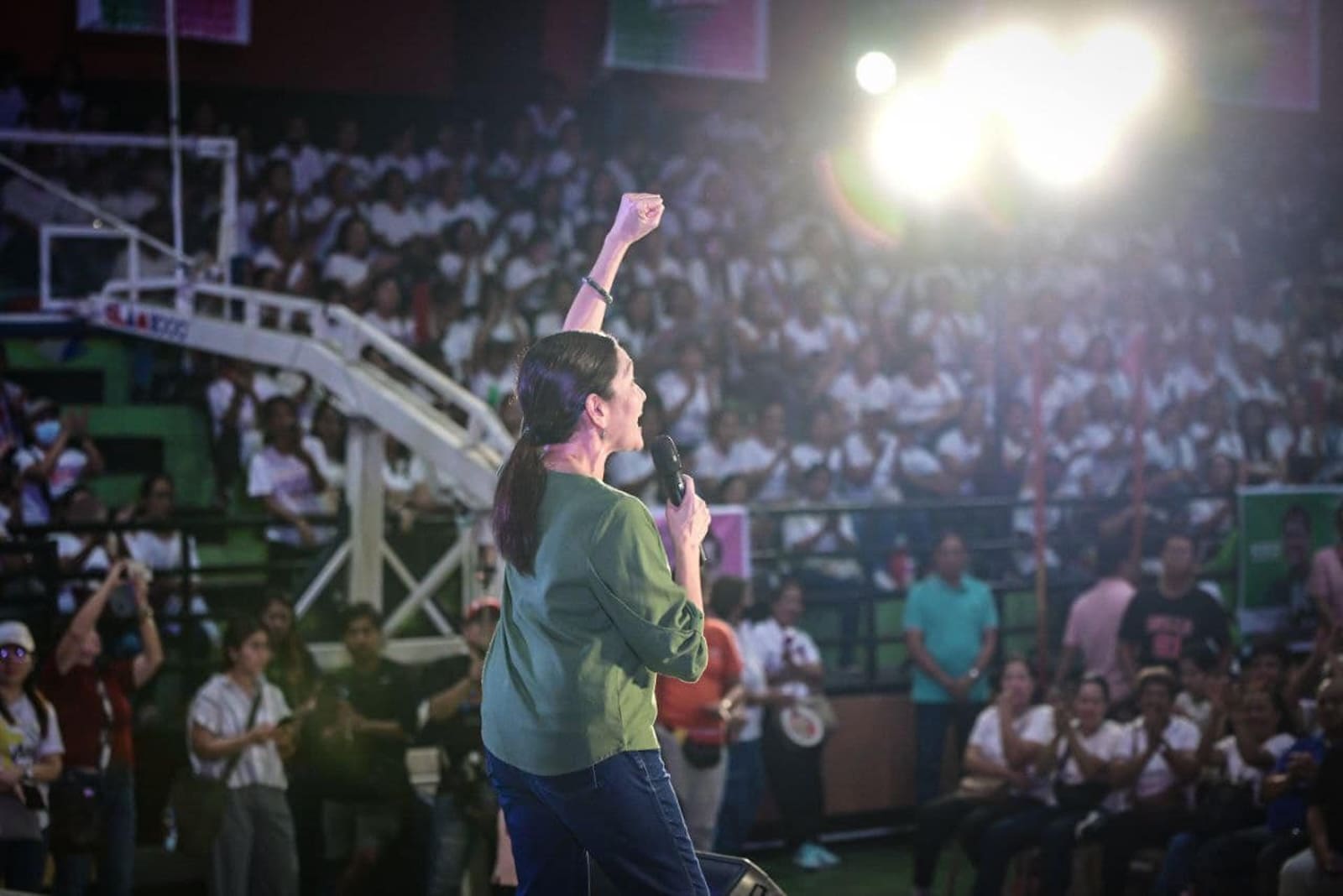
Politics is such a concentrated space for reaching out into communities beyond our own. Any politician, and I too have to admit — we have to make compromises to make steps forward. I can think of at least one vote I cast that I’m not happy about. There were certain circumstances I used as my excuse at the time, pero hindi ko siya malimutan. I always remember to make up for that part of my vote habang mambabatas pa ako. Because of that reality of compromise in politics, I have to remind myself that that’s why I’m part of a political party — a movement — kasi ito ‘yong community of shared values who can remind me, “Ito ‘yong value natin kaya tayo nasa space na ‘to, sa landas na ‘to.” Or, “Hoy, lumilihis ka na.Lumalabag ka. Magbalik loob ka.”
What I thought was very interesting about the Alice Guo case was that a lot of the revelations came from you and your colleagues in the Senate rather than the police and the media, which I thought was unprecedented. In the face of powerful people, how do you maintain assertiveness, given that the Filipino culture is non-confrontational in nature?
Very interesting. I think we need to remember that we have fought as a people — the Filipinos before us, or even before there was an idea of the Philippines and the Filipinos. ‘Yong mga ninuno natin, they also came to their own awakening na “Hindi ko na dapat tiisin ‘to! Kailangang pumalag!” Then they realize na may mga ibang gan’on din na pakiramdam.
In my generation, those moments were the Ninoy assassination, the civil disobedience campaign that followed, the snap elections, People Power. The generation after us, maybe it was EDSA II. I think all generations have that memory. I ask the young people now, “What’s your crucible? What’s your memory?” Habang nabubuhay tayo, habang tumatanda tayo, we will return to those moments na kaya ganito ang paniniwala ko bilang Pilipino, bilang tao.
I also think we need to remember that culture is not cast in stone. It’s dynamic, it’s evolving. It’s an expression of the way we live. We, too, are not cast in stone. We have evolved since the dawn of time. We can change. We can change our culture. We need to recover a little more of that assertiveness that our mga ninuno used to bring us forward. It will not cancel our pagpapahalaga or pakikisama. Otherwise, how can we fight for justice? We have to find ways in our interpersonal relations, in society, to always respect the dignity of a person even when he or she is our enemy. But we must fight. I’m always hopeful that, in every generation, we can work out combinations of our best characteristics as Filipino people, kasi nagawa na natin.
Have gender stereotypes impacted the way you’ve been perceived over the course of your career?
Overwhelmingly. In good and some bad ways, too. The good ways… It’s natural for me to approach things as I was born — as a woman, who happens to be cis-gendered heterosexual, but who has other kabaro [colleagues] who are of different SOGIESC; who has children, one of whom is a member of the LGBTQIA+ community; as a woman who always worked outside the home, because the work in the home is also work. It’s arguably the hardest work. So ang daming economic prescriptions kaugnay niya that it should be computed in the gross domestic product — that women, men, or any person of whatever SOGIESC, who has been a full-time homemaker all their lives, should also receive a pension.
And the bad side, wow! I’ve had some colleagues from the House, and even here in the Senate, who tell me stuff like, “Why are you arguing so hard for that provision in your bill? That’s just a hairdryer” — meaning “It’s just a shallow thing that only you women use,” as if men don’t use it, while covering up the vested interest that he was defending, which was going to be addressed by that provision. Or being told things like, “Sweetheart, this is not the draft letter I asked for.” “I’m telling you, I’m not your sweetheart.” “Oh, darling, this is not the draft letter I asked for.” [Scoffs] Sino ba ang English teacher mo noong grade school ka?! Or hearing the weirdest things when interpolating the gender-related bills — whether the SOGIESC Equality Bill or Dissolution of Marriage Bill. Even the Prevention of Adolescent Pregnancy Bill.
For me, it’s my strength. It’s my weapon in political combat that God made me be born a woman. In the same way I’m sure many men or persons of diverse SOGIESC feel that way. However we were born, para sa akin, ang importante lang na we are aware of ourselves and the context in which we move because that also shapes how we fight. Importante na maging kapakipakinabang. Let’s not just occupy space or exhale carbon dioxide. We live. And when we die, we have lived. Sana it would have mattered, especially for the people who love us and who we love.

It took you a couple of tries before getting a seat in the Senate. What did you learn from those initial campaigns about what it takes to run and win a successful election campaign?
We learned to study surveys, research, and data more seriously. If our internal polling showed how I was weak in certain areas or groups of population, we’d then make sure to at least show up in those places and address grievances of the constituents in whatever way we could.
In the last 2022 elections, for example, despite all odds, I did make it to the top 12 because we listened to data on the ground. We strengthened our presence in places where I could make some headway, particularly in the Lingayen-Legazpi Corridor, vote-rich areas from Pangasinan, Central Luzon, and Calabarzon, to NCR and Bicol. We also attribute the win to our “Healthy Buhay at Hanapbuhay” campaign.
It’s the mid-term elections next year. What message do you have for Filipinos who have never voted?
To those who will be first time voters next year, including those who were not yet voters two years ago, but mobilized with us in that unprecedented campaign: Please continue to use your values, your own worldview, to select. And please do select. Please stay engaged [on] which candidates, parties, platforms of governance, and track records you want to see representing our government. [Whispers] Please vote for Kiko Pangilinan and Bam Aquino for the Senate!
There are some people who choose not to vote, too.
Yeah, please vote. Please vote. Our enemies want us to just give up, to cede the country to them. But it’s our country, too. So we have to fight. I think we cannot afford a third successive administration, which doesn’t represent the best of what we are, and what we want to become. This is just my biased point of view.
Starting next year, which is a mid-term — but is a preparation for the general elections in 2028 — I really plead that, together, we can build a progressive administration after this one. Not just one, not even just two. Maybe three? So, for 18 years, two decades, one generation. With them, we can institutionalize reforms. We can internalize the cultural changes [on] democracy and everything else.
So, please do vote. Please don’t disengage because we need you.
Styling by Shark Tanael
Special thanks to the Office of Senator Risa Hontiveros
Senator Risa wears Carolina Herrera tweed blazer
Carolina Herrera black long sleeve dress
Charles & Keith black leather slingback heels
Natalya Lagdameo pearl and gold earrings
Vania Romoff cream longsleeve top
Vania Romoff cream pencil skirt
Harlan+Holden black knit longsleeve
Moschino black trousers available in Cul-de-Sac, Podium Mall
Charles & Keith black leather slingback heels


